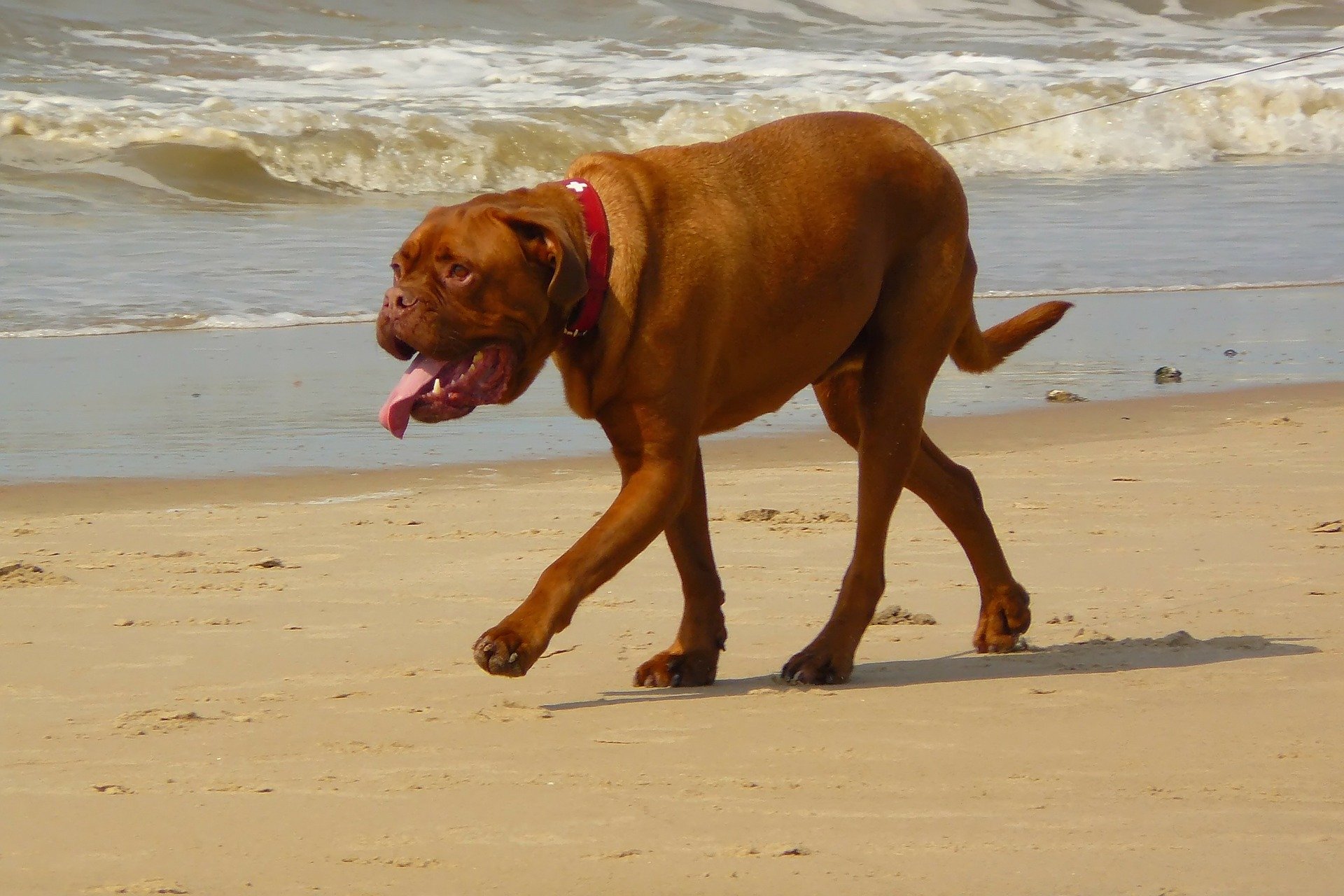Dogs normally pant, as it is a way for them to cool off . If your dog is panting after exercise, or when he is hot or excited, this is most likely normal and nothing to be concerned with. However, excessive panting can be a sign of a serious condition. It is important to understand your dog’s normal panting behavior so that you can identify if they are acting oddly or in distress.
Depending on their size and breed, dogs take between 10 and 30 breaths per minute. If you begin to notice that your dog is panting more heavily, or for longer periods of time, you should look into further. Here are some of the possible reasons your dog is exhibiting excessive panting.
Causes of Excessive Panting
Heat Stroke or Exhaustion: Here in the Sarasota and Bradenton area, we have to be very cognizant of the possibility of heat-related stress on our dogs. While it is perfectly normal for your dog to pant harder after a run in the sun, you should be very aware of the signs of heatstroke. If in addition to heavy panting your dog has red gums, excessive, sticky saliva, or seems dizzy, get him to shade and give him water. A dog suffering heatstroke will have a temperature of over 104 degrees. If it is possible, take his temperature rectally. If you cannot lower the temperature to 103 degrees or your dog is vomiting or having seizures, bring him in for medical care immediately.
Poisoning: Dogs often pant more heavily when they don’t feel well. If your dog suddenly begins a pattern of excessive panting for no apparent reason, watch him carefully. If he becomes lethargic or vomits, he may have ingested a toxic substance. Get him to the vet as soon as possible to be checked out.
Chronic Health Problems: Like humans, dogs can develop chronic health condition which, if left untreated, can be fatal. Here are a few to be on the lookout for:
- Heart Failure: If a dog is suffering from a heart ailment, one of the first signs may be difficulty breathing. They will also have less tolerance for exercise and may exhibit heavy panting will very little exertion.
- Adrenal Issues: Commonly known as Cushing Syndrome, this health situation arises when the adrenal gland produces too much cortisol. Along with heavy panting, your dog may exhibit extreme hunger and thirst, hair loss, or a distended belly.
- Lung Problems: Heavy panting can also be caused by reduced air flow to the lungs, which can be caused by tumors or a ling disease such as pneumonia.
Because dogs cannot tell us if they are in pain, they will sometimes utilize heavy panting to communicate to you that they are injured or in pain. If you cannot determine any other reason for the unexplained panting, consider looking over your dog to see if you can discern an injury. Look for limping or any other sign that he may be hurt.
It is important to point out that a perfectly healthy dog will pant heavily after exertion or exercise, and may do so more in the heat. Excessive panting, however – panting that is prolonged, accompanied by other symptoms, or which you cannot stop with rest, shade and water – may indicate a problem.
Gulf Coast Dog Training Gulf Coast Dog Training Gulf Coast Dog Training employs a team of dedicated dog lovers to help you train and care for your dogs. If you live in the Sarasota area and are looking for expert obedience training or safe playcare options, give us a call.





